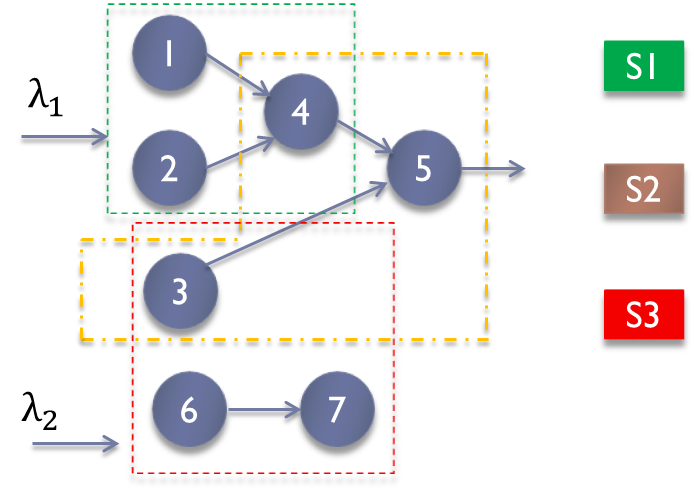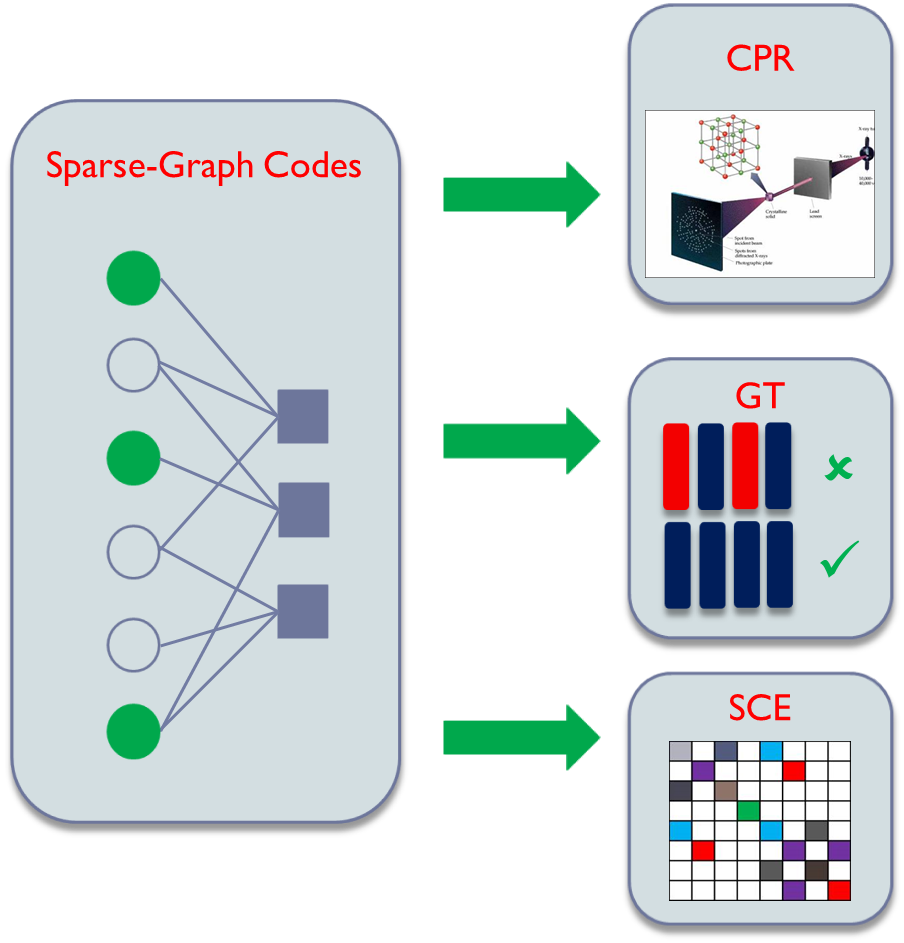Below, we briefly explain some of our group's research projects.
Codes for Speeding Up Large-Scale Distributed Machine Learning
 |
Distributed machine learning algorithms that dominate the use of modern large-scale computing platforms face several types of randomness, uncertainty and system noise. These include straggler nodes, system failures, maintenance outages, and communication bottlenecks. In this project, we view distributed machine learning algorithms through a coding-theoretic lens, and design coded algorithms that provide robustness against this system noise. Our goal is to understand fundamental trade-offs in distributed computation between latency of computation, redundancy in computation, communication bottlenecks and storage capacities. |
Intelligent Transportation Networks with Mixed Autonomy
 |
The advent of autonomous vehicles promises to transform transportation and mobility. While the most dramatic changes likely remain decades away, semiautonomous capabilities such as adaptive cruise control are already available. These technologies will coexist and interact with traditional, manually driven vehicles into the foreseeable future. As a result, transportation infrastructure is entering a stage of mixed use whereby vehicles are capable of varying levels of autonomy. In this project, we develop models and algorithms for controlling mixed traffic flow where some fraction of vehicles are equipped with varying levels of autonomy and the remaining are manually driven. In particular, we develop models of link and network capacity for mixed traffic, and utilize these models to develop algorithms for management and control of mixed traffic. |
Robust Scheduling for Large-Scale Networks
 |
Networked infrastructures such as data centers and transportation systems are rapidly growing in size and demand. These large-scale networks are often characterized by unknown and time-varying parameters that makes the design of optimal control strategies more challenging. In this project, we develop mathematical models for various networks that span diverse application areas from job scheduling in data centers to healthcare systems. The focus of this project is to design simple, distributed, and robust scheduling algorithms that maximize the throughput of the systemin the presence of uncertainty in network parameters. |
Sparse Recovery of High-Dimensional Signals
 |
The past several years have seen a new approach to the recovery of high-dimensional signals, where a few sketches of the signal retain sufficient information for an approximate sparse recovery. This approach has found numerous applications in the areas of signal processing, imaging, data stream computing, etc. In this project, our focus is to exploit tools from modern coding theory to design fast and efficient reconstruction algorithms for a variety of problems including compressed sensing, compressive phase retrieval, group testing, and mixed linear regression. |